Looking for the best spicy chili recipes? You've come to the right place. This guide provides everything you need to know about creating delicious, safe spicy chili dishes. From understanding the Scoville scale to handling super-hot peppers, we've got you covered with step-by-step instructions and expert tips.
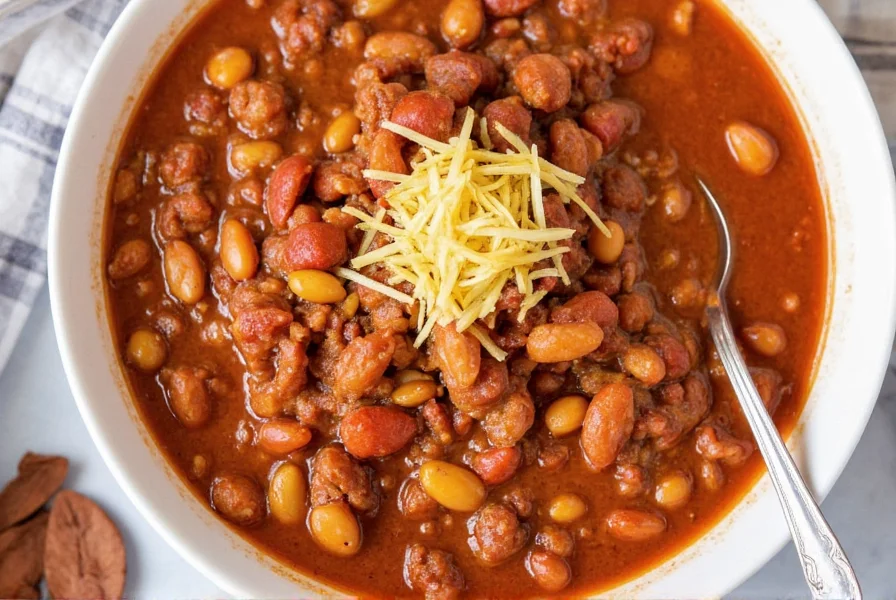
Understanding the Scoville Scale
The Scoville scale measures pepper heat intensity using Scoville Heat Units (SHU). Developed in 1912 by pharmacist Wilbur Scoville, it quantifies capsaicin concentration—the compound responsible for spiciness.
| Pepper Type | Scoville Heat Units (SHU) | Common Use |
|---|---|---|
| Bell Pepper | 0 SHU | Sauces, salsas, stuffing |
| Jalapeño | 2,500–8,000 SHU | Tacos, nachos, grilled cheese |
| Habanero | 100,000–350,000 SHU | Pickling, sauces, marinades |
| Ghost Pepper (Bhut Jolokia) | ~1,000,000 SHU | Extreme dishes, novelty foods |
| Carolina Reaper | 1,400,000–2,200,000 SHU | Competition-level hot sauces, dares |
Top 7 Spicy Chili Recipes with Step-by-Step Instructions
Classic Spicy Texas Chili
Ingredients: 2 lbs ground beef, 1 cup chopped onions, 2 tbsp cumin, 1 tbsp smoked paprika, 2 dried ancho chilies (seeded), 1 cup tomato sauce, 1 cup beef broth, salt to taste, cornbread for serving.
Steps: 1. Brown beef in a large pot over medium heat. 2. Add onions and cook until translucent. 3. Stir in cumin, smoked paprika, and seeded ancho chilies. 4. Add tomato sauce and beef broth. Simmer for 45 minutes. 5. Season with salt. Serve hot with cornbread.

Thai Green Curry with Thai Chilies
Ingredients: 1 lb chicken breast (sliced), 2 tbsp green curry paste, 1 can coconut milk, 2 fresh bird's eye chilies (sliced), 1 stalk lemongrass (bruised), 1 cup bell peppers (sliced), 1 tbsp fish sauce, basil leaves for garnish.
Steps: 1. Heat coconut milk in a pan until simmering. 2. Add green curry paste and cook for 2 minutes. 3. Stir in chicken, lemongrass, and bird's eye chilies. Cook for 10 minutes. 4. Add bell peppers and fish sauce. Simmer 5 more minutes. 5. Garnish with basil leaves before serving.
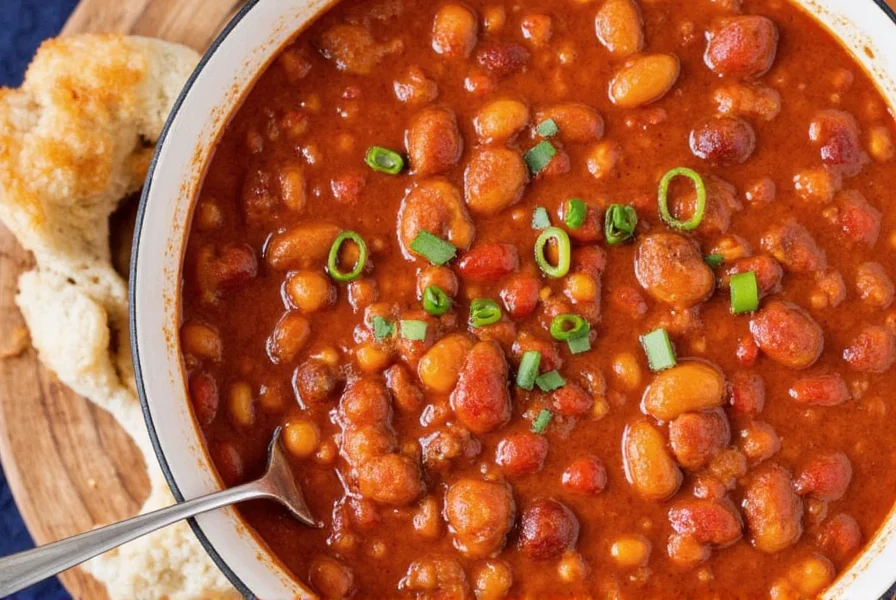
Mexican Habanero Salsa
Ingredients: 4 habanero peppers (seeded), 2 roasted tomatoes, 1 small onion (chopped), 2 tbsp lime juice, 1 tsp salt, 1 tbsp cilantro (chopped).
Steps: 1. Roast tomatoes and habaneros on a baking sheet at 400°F for 15 minutes. 2. Blend roasted ingredients with onion, lime juice, and salt until smooth. 3. Stir in cilantro. Chill for 30 minutes before serving.
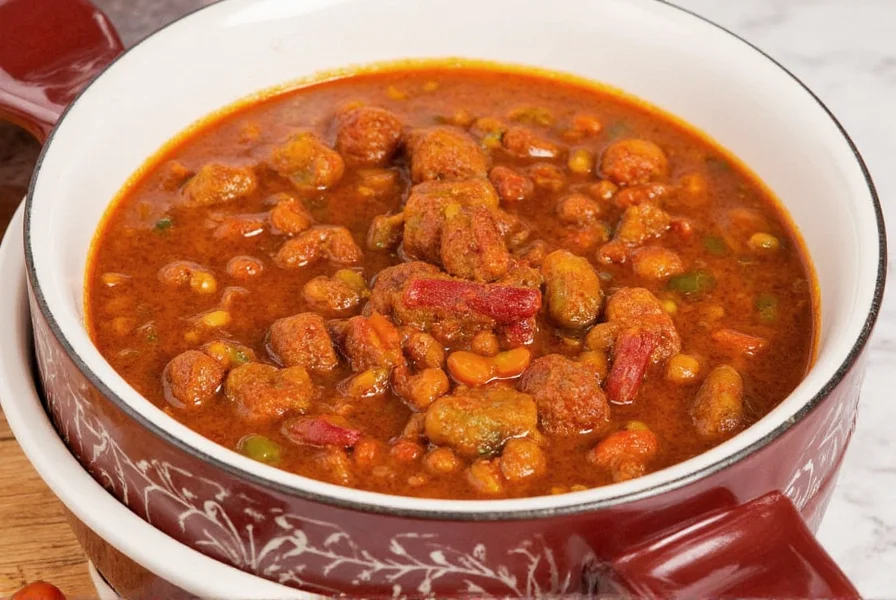
Ghost Pepper Chicken Wings
Ingredients: 2 lbs chicken wings, 1/4 cup ghost pepper sauce, 2 tbsp honey, 1 tbsp apple cider vinegar, 1 tsp garlic powder, 1 tsp paprika.
Steps: 1. Bake wings at 400°F for 35 minutes until crispy. 2. Mix ghost pepper sauce, honey, vinegar, garlic powder, and paprika. 3. Toss baked wings in sauce mixture. Serve immediately.
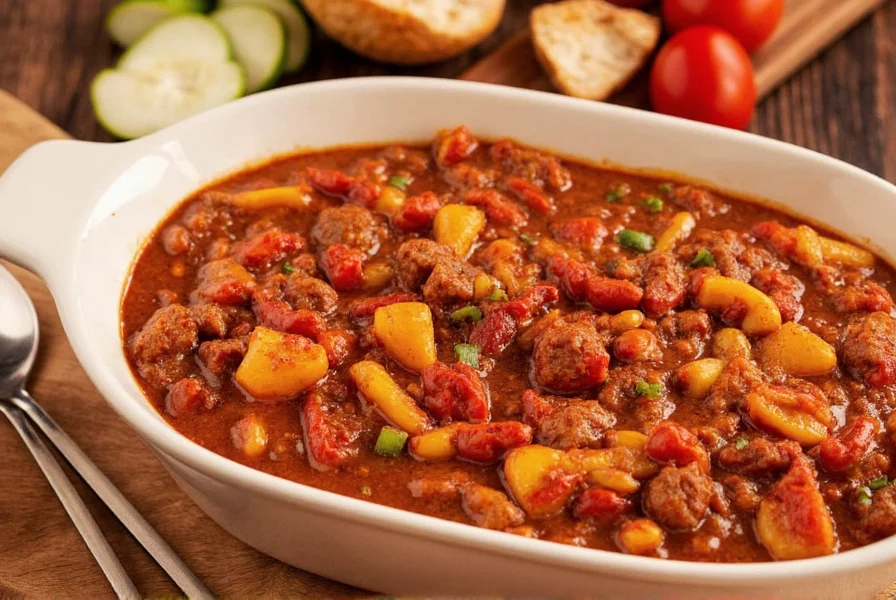
Korean Gochujang Chili Ramen
Ingredients: 2 ramen blocks, 2 cups pork broth, 2 tbsp gochujang paste, 1 tbsp gochugaru, 1 egg, 2 green onions (sliced), 1 tsp sesame oil.
Steps: 1. Cook ramen according to package instructions. 2. Heat pork broth in a pot. Add gochujang and gochugaru. 3. Pour broth over cooked ramen. Top with poached egg, green onions, and sesame oil.
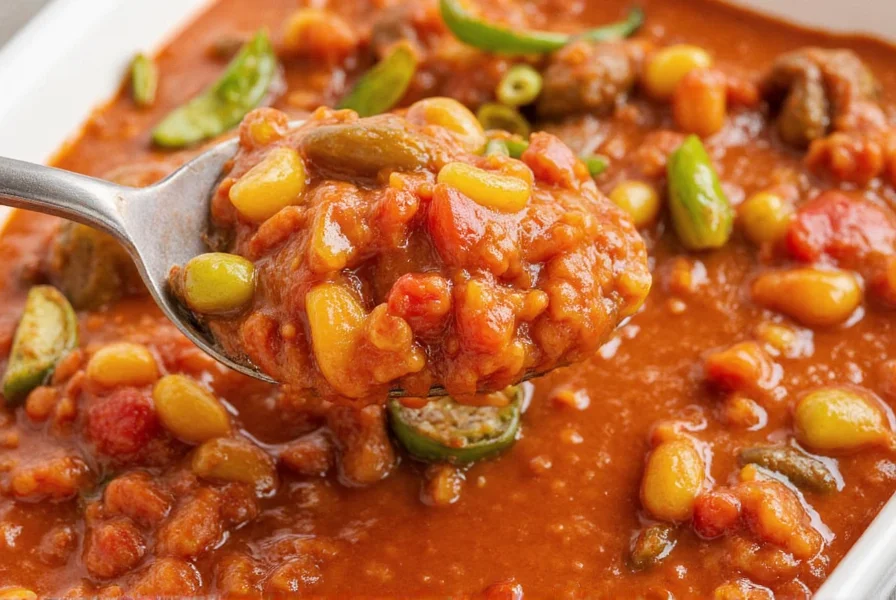
Indian Tandoori Chili Paneer Tikka
Ingredients: 8 oz paneer (cubed), 1/4 cup yogurt, 1 tbsp Kashmiri red chili powder, 1 tsp turmeric, 1 tbsp ginger-garlic paste, 1 tbsp lemon juice, 2 tbsp oil.
Steps: 1. Marinate paneer in yogurt, chili powder, turmeric, ginger-garlic paste, and lemon juice for 1 hour. 2. Thread onto skewers. Grill for 10 minutes until charred. 3. Serve with mint chutney.
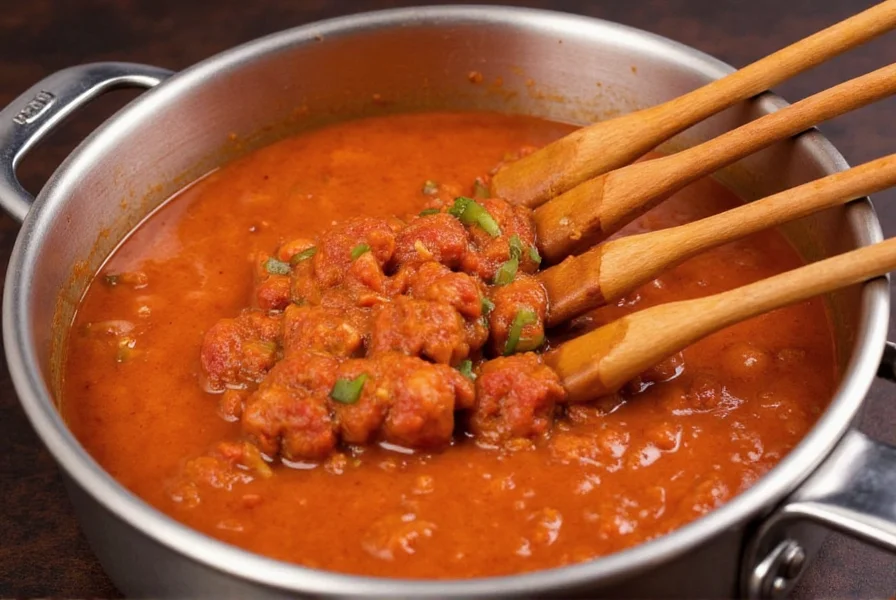
Carolina Reaper Hot Sauce
Ingredients: 10 Carolina Reaper peppers (seeded), 1 cup white vinegar, 2 cloves garlic (minced), 1 tsp salt, 1 tbsp honey.
Steps: 1. Blend peppers, vinegar, garlic, and salt until smooth. 2. Simmer for 10 minutes. 3. Stir in honey. Cool and store in sterilized bottles. Use sparingly.
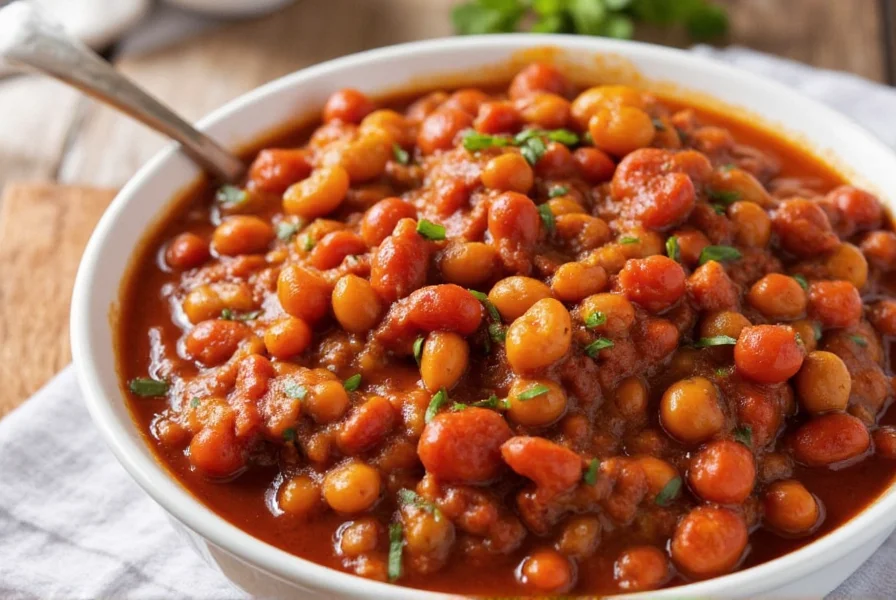
Spicy Chili Buying Guide
Dried Ancho Chilies
Features: Mild to medium heat with sweet, fruity undertones. Best For: Mole sauces, enchilada fillings, stews. Recommended Brand: El Guapo Organic Dried Chilies
Fresh Serrano Peppers
Features: Small but potent; ideal for sharp heat without overpowering flavors. Best For: Salsas, guacamole, salads. Recommended Brand: Nature's Way Farm Fresh Pack
Cayenne Pepper Powder
Features: Consistent heat and versatile in savory and sweet applications. Best For: Rubs, soups, chili powders, chocolate desserts. Recommended Brand: McCormick Culinary Cayenne
Chipotle in Adobo Sauce
Features: Smoked jalapeños in tangy tomato-based sauce. Best For: Tacos, dressings, marinades, dips. Recommended Brand: La Costeña Chipotle in Adobo
Hot Sauce Kit (DIY)
Features: Includes dried chilies, vinegar, and instructions for custom sauces. Best For: Enthusiasts who love experimenting. Recommended Kit: The Chilli Factory DIY Hot Sauce Starter Kit
How to Handle the Heat Like a Pro
- Wear gloves: Capsaicin sticks to skin—always protect hands during prep.
- Rinse with milk: Milk neutralizes burn faster than water due to casein protein.
- Remove seeds: Most heat resides in seeds and membranes; discard them for milder flavor.
- Toast dried chilies: Dry-toast before grinding to enhance aroma and depth.
- Balance with sweetness: Add brown sugar, honey, or lime juice to counter intense heat.
- Pair with dairy: Yogurt, sour cream, or coconut milk soothes spicy bites effectively.
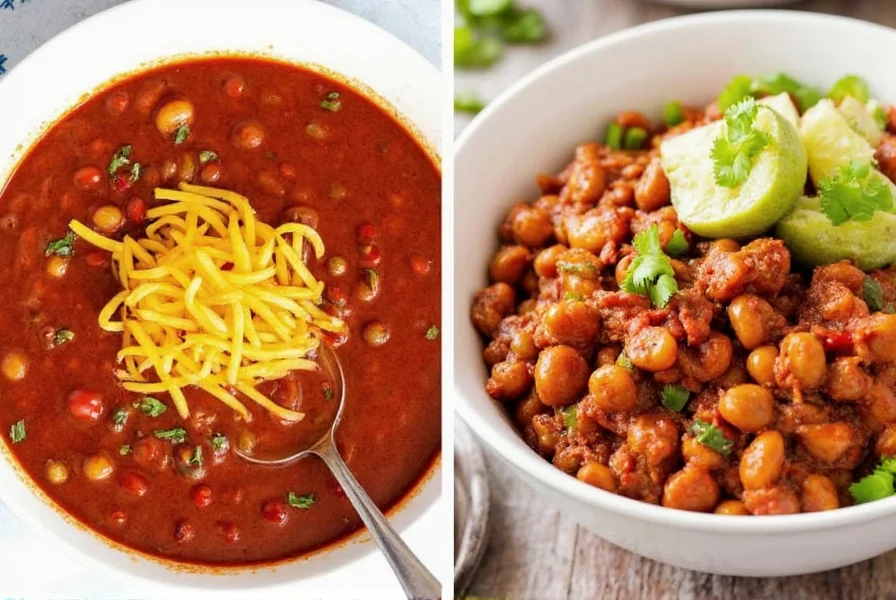
Frequently Asked Questions About Spicy Chili Recipes
What is the best chili for beginners who want to try spicy food?
Start with mild peppers like jalapeños (2,500-8,000 SHU) or poblano peppers. Remove seeds and membranes to reduce heat. Gradually increase heat levels as your palate adapts. Always taste-test before adding more spice.
How can I reduce the heat level in a chili recipe that's too spicy?
Add dairy (yogurt or sour cream), sweetness (honey or brown sugar), acidity (lime juice), or starches (rice or beans). Increase non-spicy ingredients to dilute heat. Avoid water—it spreads capsaicin instead of neutralizing it.
What's the difference between fresh and dried chilies in recipes?
Fresh chilies provide bright, grassy notes and higher moisture, while dried chilies develop deeper, smoky flavors through dehydration. Dried chilies often require rehydration before use. Use fresh for salsas and dried for mole sauces to achieve authentic flavor profiles.
How do I safely handle extremely hot peppers like ghost peppers?
Always wear nitrile gloves (not latex), work in a well-ventilated area, and avoid touching your face. Clean surfaces with soapy water after handling. If skin contact occurs, rinse with milk or dairy products—capsaicin is oil-soluble and water won't remove it effectively.
What are some good pairings to balance spicy chili flavors?
Pair with cooling dairy (yogurt, cheese), sweet elements (mango, pineapple), starchy foods (rice, cornbread), and acids (lime juice, vinegar). Mexican dishes use avocado and lime; Thai cuisine pairs with coconut milk; Indian dishes balance with raita (yogurt sauce).
Can I substitute one type of chili for another in recipes?
Yes, but check Scoville ratings and flavor profiles. Substitute serranos for jalapeños (use half the quantity due to higher heat), or ancho for pasilla chilies. Always start with less spice—you can add more but can't remove excess heat once added.
Why does dairy help neutralize the burn from spicy chilies?
Dairy contains casein protein, which binds to capsaicin (the heat compound) and washes it away. Water only spreads capsaicin around your mouth. Milk, yogurt, or sour cream are most effective for relief.
How long can I store homemade chili recipes?
Refrigerate in airtight containers for 3-4 days. Freeze in portions for up to 3 months. Flavors often improve after 24 hours as spices meld. Reheat with a splash of water or broth if too thick.
Conclusion: Turn Up the Burn Safely
Spicy chili recipes are about exploring flavor, tradition, and personal boundaries—not just heat. With the right ingredients, tools, and knowledge, you can create dishes that are bold yet balanced. Respect the spice, but don't be afraid to experiment—life's too short for bland food!
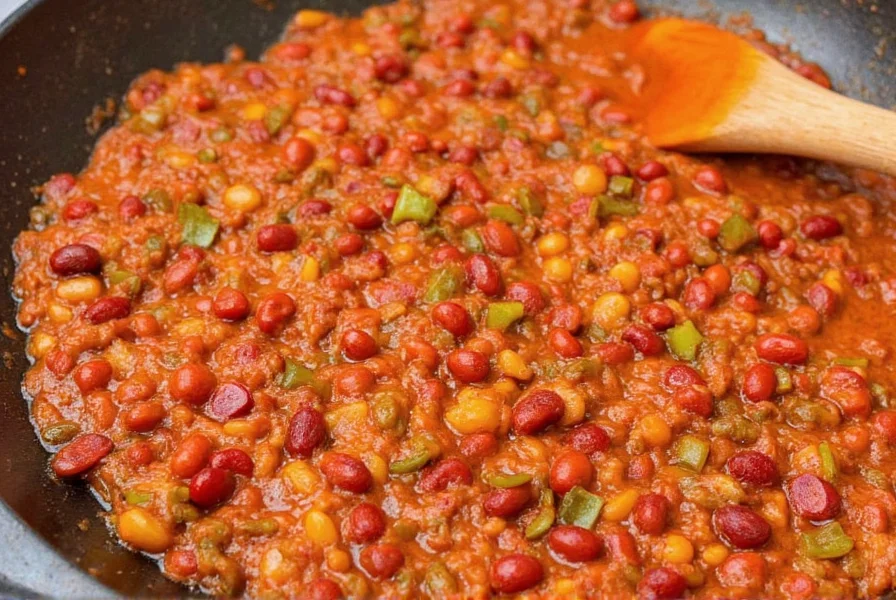

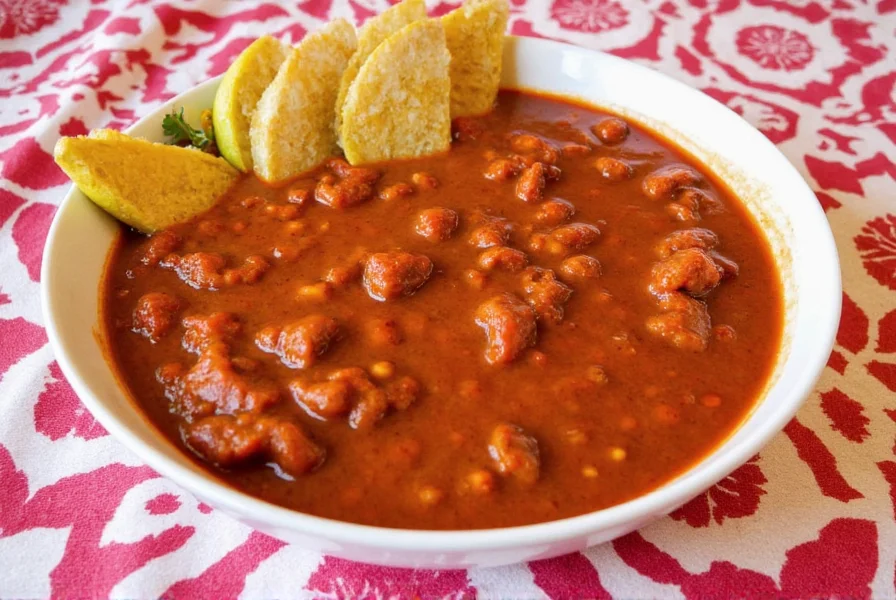









 浙公网安备
33010002000092号
浙公网安备
33010002000092号 浙B2-20120091-4
浙B2-20120091-4